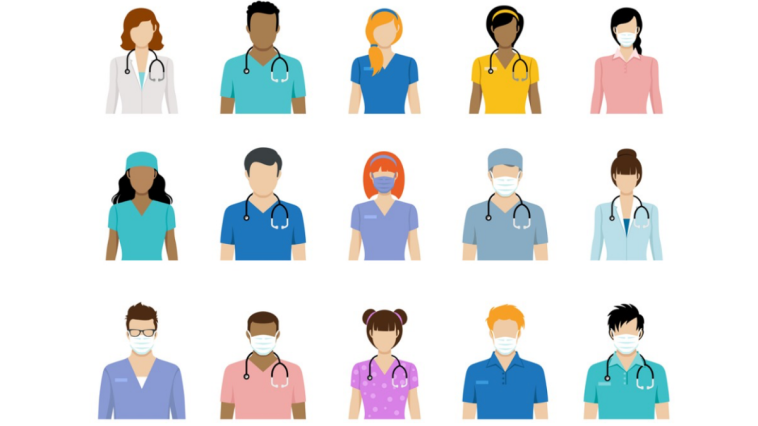Each year, an average of 155,000 registered nurses graduate from nursing school in the US. Nursing is a rewarding profession that directly impacts people’s lives and well-being. It is among the most sought-after professions, offering competitive salaries and sustainable jobs. If nursing is your dream career, it is only natural to be curious about what to expect when starting your career. In this blog, we share everything you need to know about starting a career in nursing.
Six things to expect when starting a nursing career
Starting your career in nursing can be both exciting and challenging. Here are some of the things to expect:
You must have the right education and licensing
Before you become a registered nurse, you must complete a nursing program and obtain the necessary licensure. Nursing programs comprise theoretical and practical training that prepare you for diverse nursing duties. The educational programs are offered in nursing schools across the USA. Once you have earned a nursing degree, you must pass the NCLEX-RN exam to obtain a license. The education and licensing process may take several years to complete, but it is well worth the effort.
Nursing offers various career paths
Nursing is a vast profession that offers a wide range of career specializations and paths. You can work in various settings, from hospitals, private clinics, schools, and long-term care facilities to research and learning institutions. Additionally, with the nursing field constantly evolving, there are various areas of specialization to consider. The following are a few of the fastest-growing nursing specialties:
- Cardiac nurse
- Certified registered nurse anesthetist (CRNA)
- Clinical nurse specialist (CNS)
- Critical care nurse
- ER Nurse
- Family nurse practitioner (FNP)
- Geriatric Nursing
- Perioperative nurse (Surgical/OR Nurse)
- Mental health nurse
Demanding work schedule
Nursing is a physically- and mentally-demanding career with shift work and long hours. You may be required to work evenings, nights, weekends, and holidays. Depending on the setting, you may also work 8, 10, or 12-hour shifts. Generally, expect to be on your feet for several hours handling emergencies and providing critical care. You may also be needed to help lift, turn, push, and move patients and equipment regularly. Additionally, a nurse’s work will not stop after their shift ends. You may also need to spend hours filing paperwork and completing digital documentation.
Varied responsibilities
Nurses play an integral role in the healthcare system. Their responsibilities include assessing patient conditions, administering medications, monitoring vital signs, assisting with procedures, documenting patient information, and providing emotional support. As a nurse, you may also be required to educate patients and their families and collaborate with other healthcare professionals to enhance patient care.
Nursing involves lifelong learning
Since nursing is a constantly-evolving field, nurses require lifelong learning to update their skills with the latest practices, advancements, and trends. As a nurse, it is essential to recognize that nursing education doesn’t stop once you earn your degree. Ongoing learning is so critical to nursing that it is required by the Code of Ethics for Nurses. Additionally, lifelong learning is also required by most states for license renewal. Earning an online Family nurse practitioner (FNP) degree can be part of a nurse’s ongoing education and career advancement. Baylor University’s online Doctor of Nursing Practice Family Nurse Practitioner (DNP FNP online) track equips RNs to lead primary care delivery, serving patients of all ages while fostering transformative leadership, innovation, and improved patient outcomes for diverse populations.
Nursing is in demand
There is no doubt nurses will always be in demand. According to the US BLS, the nursing job market is set to grow at an impressive rate of 9% between now and 2030. This represents a higher job growth rate compared to all other expectations. Today, many states are experiencing a nursing shortage amid an aging workforce. With high demand and low labor supply, hospitals and other healthcare facilities offer competitive salaries to attract talent. The average annual nurse’s salary across the country is $80,000, which is higher than other occupations. Furthermore, as a nurse, expect to enjoy additional benefits such as:
- Wellness programs
- Paid family leave
- Retirement benefits
- Reimbursement for certification fees
- Childcare
- Paid vacation and holiday
- Health and life insurance
- Tuition reimbursement
- Income annuities
What should I expect on my first day at work as a nurse?
After countless hours studying for your nursing degree, you have finally graduated and obtained your license. However, this is only the start of your career. You need to secure your first interview with a healthcare provider to begin practicing your profession. If it is your first day at work, it is understandable to be intimidated by your initial nursing assignment. We share the following tips to help you face your first real job:
Ask questions and talk to everyone
Everyone you interact with at the hospital holds crucial information that could help you navigate the systems. Maintaining open communication and talking with everyone, from receptionists to LPNs and MAs, can help you gain insights into how things are done.
Master the policies and paperwork
Each employer has different rules, practices, and ways of doing things. Take some time to familiarize yourself with work policies and how your new job handles patient information. Learning the software and apps the facility uses can reduce repetitive tasks.
Be prepared for the night shift
If you have never worked a night shift before, you might be intimidated by the thought of one. Unfortunately, night shifts are part of a nurse’s profession which you can’t avoid. If you get assigned to a night shift, prepare adequately for it. This may mean getting plenty of sleep during the day, planning a healthy snack for energy, staying hydrated, and keeping a consistent meal schedule. Given enough time, you’ll most likely qualify for day shift if that’s what you prefer.
Start your nursing career today
The demand for nurses keeps growing with the growing population. Consequently, nursing as a career continues to offer several worthwhile benefits, including high salaries, opportunities for career advancement, flexible work schedules, and a sense of fulfillment. If nursing is your career choice, it is worth remembering that the profession is diverse, and your experiences may vary based on your specialty, work environment, and personal preferences. It always pays to approach your career with dedication, willingness to pursue further education, and a strong passion for helping others.




